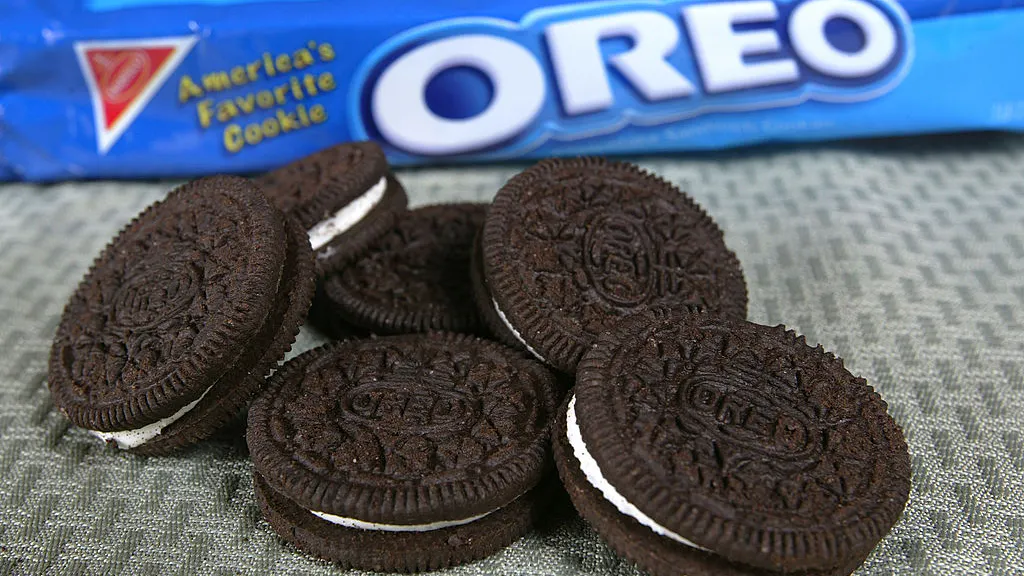Oreo Cookie asserted what they apparently believe is the morally correct side of the cultural gender debate Thursday while the company that owns them fights a class-action lawsuit alleging they “knowingly profited” from child slave labor.
“Trans people exist,” Oreo Cookie’s official account tweeted simply. The cookie company’s opinion came the same day as the cultural debate over transgenderism reached a fever pitch amid the passage of the Equality Act by the House of Representatives, the historic confirmation hearing of the openly transgender Dr. Rachel Levine, and the brand name neutering of Mr. Potato Head.
Trans people exist.
— OREO Cookie (@Oreo) February 25, 2021
Several conservative personalities on Twitter questioned the propriety of a cookie company opining on heated cultural issues.
“Why even take a political stance on this?” asked Fox News contributor Lisa Boothe. “This is why America is so divided. Even cookies have to be divisive.”
Why even take a political stance on this? This is why America is so divided. Even cookies have to be divisive.
— Lisa Boothe 🇺🇸 (@LisaMarieBoothe) February 25, 2021
“We don’t want propaganda with our snacks,” wrote Dan Gainor, who is Vice President of Business and Culture for the Media Research Center.
https://twitter.com/dangainor/status/1365057802079784974
Media analyst Mark Dice joked, “Sir, this is the cookie aisle.”
Sir, this is the cookie aisle.
— Mark Dice (@MarkDice) February 25, 2021
“You’re a bad cookie,” Newsmax White House correspondent Emerald Robinson scolded.
You’re a bad cookie. https://t.co/V139rObh2A
— Emerald Robinson ✝️ (@EmeraldRobinson) February 26, 2021
Oreo Cookie’s assertion was nevertheless met with overwhelming support from Twitter users, garnering more than 77,000 retweets and nearly half a million likes as of Friday morning.
Oreo Cookie has expressed support for transgender behavior before. When actress Ellen Page announced her self-identification as a transgender man named Elliot in December, Oreo tweeted, “We love this, Elliot!” followed by the applause, trans flag, and heart emojis.
Oreo joined several other corporate accounts in congratulating Page, such as Netflix, Hulu, Rotten Tomatoes, Dark Horse Comics, Bud Light, and Ritz Crackers. The official Twitter account of Sony even took the time to correct the pronoun usage of an anonymous Twitter user with fewer than 100 followers.
We love this, Elliot! 👏🏳️⚧️❤️
— OREO Cookie (@Oreo) December 1, 2020
While Oreo virtue signals on social media, however, Nabisco’s parent company Mondelez International is fighting a class-action lawsuit filed against them in Washington, D.C., by the human rights firm International Rights Advocates (IRA). IRA alleges that Mondelez and six other chocolate companies “knowingly profited” from illegal child slave labor in Africa.
As The Guardian reported:
Eight children who claim they were used as slave labour on cocoa plantations in Ivory Coast have launched legal action against the world’s biggest chocolate companies. They accuse the corporations of aiding and abetting the illegal enslavement of “thousands” of children on cocoa farms in their supply chains.
Nestlé, Cargill, Barry Callebaut, Mars, Olam, Hershey and Mondelēz have been named as defendants in a lawsuit filed in Washington DC by the human rights firm International Rights Advocates (IRA), on behalf of eight former child slaves who say they were forced to work without pay on cocoa plantations in the west African country.
The plaintiffs, all of whom are originally from Mali and are now young adults, are seeking damages for forced labour and further compensation for unjust enrichment, negligent supervision and intentional infliction of emotional distress.
It is the first time that a class action of this kind has been filed against the cocoa industry in a US court. Citing research by the US state department, the International Labour Organization and Unicef, among others, the court documents allege that the plaintiffs’ experience of child slavery is mirrored by that of thousands of other minors.
Related: The ‘Equality Act’ Destroys Religious Liberty: Here’s What You Need To Know

.png)
.png)

